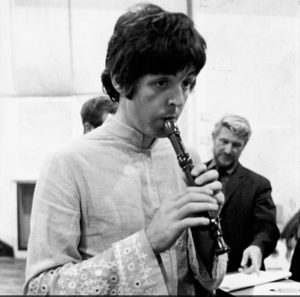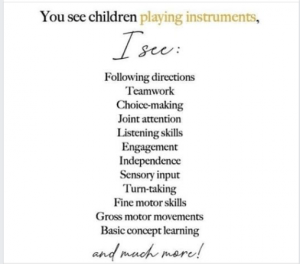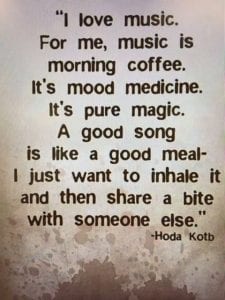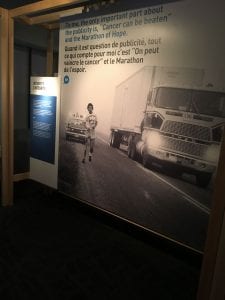March8
I finally had the chance to watch the Oscars. I am not going to lie; I was brought to tears a few times, by the music. It began with Queen and Adam Lambert bringing a full scale stage show of ‘We Will Rock You and We are the Champions’. The pomp and circumstance of the event, went right out the window. All of the politics; left and right, women, men, ethnicity, LGTBQ and every single difference that has been discussed, shouted about, tweeted about and discussed some more gone because of song. Every. single. person. was on their feet singing along with Queen! United as one voice. That right there is the power and joy of music. The universal language of song. Later, I was brought to chills again with the Divine Miss M, Bette Midler, sang a beautiful piece, “The Place Where Lost Things Go” from the new Mary Poppins Returns soundtrack. Her voice is so stunning and the piece of music was classic Disney. Another “American Idol”, Jennifer Hudson, brought down the house with “I’ll Fight” a song that was written for a documentary speaking of the life of supreme court Justice Ruth Gainsburg. The evening was brought home with Lady Gaga and Bradley Cooper singing “Shallow”. I swear, it was better than the movie! The entire audience was mesmerized. For as long as I’ve watched, I can’t remember being so emotionally moved by the musical performances. The overall mood of the show was different. Less political, joyful and fun, a true celebration. Celebration and joy for music makes us appreciate it so much more. It seems to weave its way into all faucets of life. Waking up to a song in the morning. Listening to music while working, while shopping, while driving, while doing household business, basically there are uncountable moments in the day where music is suddenly a part of it. We always appreciate music and like its capacity to change the tone of a single event, it can change our lives and even our brains.
Education in music is most sovereign because more than anything else rhythm and harmony find their way to the innermost soul and take strongest hold upon it
Plato
It seems fitting then, that March is Music Education month. A celebration of Music education. This is my first year teaching music and it has been a journey. One that I am thoroughly enjoying. I have the extraordinary privilege of working with every grade 1-6 student in the building. It is a true joy. As the year progresses, I am hearing differences and seeing differences in the students abilities and knowledge. I am seeing the value each day of have a more developed music program in our school. I have also become more aware of the learning that occurs in each different area and as I do I add notes to my plans of different ways to join music to their learning. The music helps lock in an idea. Ask any of the students who had me for grade 5 science about ‘The Water Cycle’ song. Music adds depth to a student’s capacity for learning.
Music education is a very important piece of whole student’s learning puzzle. Music education is proven to increase student learning, testing, understanding of their surroundings, empathy, compassion and thoughtful evaluation, criticism and discussion on a topic. I recently read an article from Northwestern University, that the ability to keep a beat helps with the beginning processes of learning to read. The study, a first of its kind, found link between reading ability and beat keeping ability. Beat keeping link that parts of the brain that need to work in tandem for successful reading. It works with the trifecta of visual, auditory and movement in learning. So any practice in different arenas of learning that make the brain engage this way is very important. A more recent study from the University of Southern California showed, “that as little as two years of music instruction has multiple benefits…it encourages change in the white matter and also boosts engagement of brain networks responsible for decision making and the ability to focus attention and inhibit impulses”. This same study which was done with HOLA a group that brings music education to underprivileged, inner city students of Los Angeles also had other findings. The study has found that the “music training accelerates maturity in areas of the brain that are responsible for sound processing, language development, speech perception and reading skills.” And added that these changes and developments from music training, “can offset the effects on the brain developments that living in poverty can create.” The findings of this study in collaboration with other brain studies of students who a musicians suggest that, “musical training is a powerful intervention that could help children mature emotionally and intellectually.” Your feelings and mood can be affected by music. Learning music actually can change the development of your brain and the whole self.
Early Music training seems to shape the young brain, strengthening the neural connections and perhaps establishing new ones.
Dr. Frances Rauscher
Music learning in the same studies has also shown a growth in self-perception and self-esteem. Children who learn to play an instrument also have more confidence in learning other skills. We’ve been studying the art and structure of various composers in various ways since Christmas, along with singing and playing instruments. I am looking forward to the spring here when we get going on the recorders. Don’t fret! I don’t really let them leave the building as they don’t make it back (sometimes)! As well, the older ones will be spending some time on the Ukuleles.
Bibliography
medicalexpress.com – The Importance of Keeping the Beat: Researchers link ability to keep beat to reading, language skills. Submitted by Northwestern University. September 17, 2013 Summarized of the study done by Dr. Nina Kraus for The Journal of Neuroscience
TheBestBrain Possible – Music Training Strengthens Children’s Brain, decision making network. Submitted by University of Southern California. November 14, 2017
Assai Habibi et al. Childhood Music Training Induces Change in Micro and Macroscopic Brain Structure: Results from a Longitudinal Study, Cerebral Cortex (2017)
 e spirit and lightens the heart. Music was the thing that echoed around the world when there was eerie silence. One often thinks of the scene from Italy, when it was all quiet and people, artists would take to their balcony to sing and share their extraordinary talent. Or the different videos that were compiled as peopled still played music from their own homes and from around the world. The explosion of music and art during the past few years was amazing.
e spirit and lightens the heart. Music was the thing that echoed around the world when there was eerie silence. One often thinks of the scene from Italy, when it was all quiet and people, artists would take to their balcony to sing and share their extraordinary talent. Or the different videos that were compiled as peopled still played music from their own homes and from around the world. The explosion of music and art during the past few years was amazing.
 Many other factors that come into play when creating music. Factors like: pride in success of making a song, making music, working together with others to make one unified sound, a sense of accomplishment in working on something and practicing something to make it perfect. Resilience and perseverance for when it isn’t just right and working on it to get it just right. As well, as working memory, an appreciation for music and the arts and just a genuine sense of joy in making something like music. Creating a song that sounds like a song can be astounding!
Many other factors that come into play when creating music. Factors like: pride in success of making a song, making music, working together with others to make one unified sound, a sense of accomplishment in working on something and practicing something to make it perfect. Resilience and perseverance for when it isn’t just right and working on it to get it just right. As well, as working memory, an appreciation for music and the arts and just a genuine sense of joy in making something like music. Creating a song that sounds like a song can be astounding!

Recent Comments